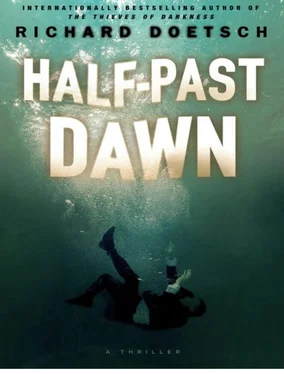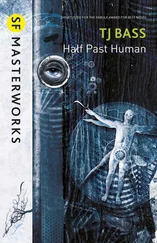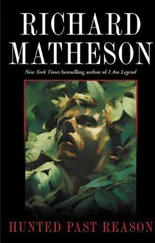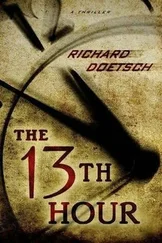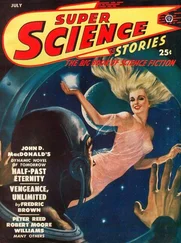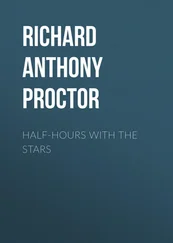Richard Doetsch - Half-Past Dawn
Здесь есть возможность читать онлайн «Richard Doetsch - Half-Past Dawn» весь текст электронной книги совершенно бесплатно (целиком полную версию без сокращений). В некоторых случаях можно слушать аудио, скачать через торрент в формате fb2 и присутствует краткое содержание. Жанр: Триллер, на английском языке. Описание произведения, (предисловие) а так же отзывы посетителей доступны на портале библиотеки ЛибКат.
- Название:Half-Past Dawn
- Автор:
- Жанр:
- Год:неизвестен
- ISBN:нет данных
- Рейтинг книги:5 / 5. Голосов: 1
-
Избранное:Добавить в избранное
- Отзывы:
-
Ваша оценка:
- 100
- 1
- 2
- 3
- 4
- 5
Half-Past Dawn: краткое содержание, описание и аннотация
Предлагаем к чтению аннотацию, описание, краткое содержание или предисловие (зависит от того, что написал сам автор книги «Half-Past Dawn»). Если вы не нашли необходимую информацию о книге — напишите в комментариях, мы постараемся отыскать её.
Half-Past Dawn — читать онлайн бесплатно полную книгу (весь текст) целиком
Ниже представлен текст книги, разбитый по страницам. Система сохранения места последней прочитанной страницы, позволяет с удобством читать онлайн бесплатно книгу «Half-Past Dawn», без необходимости каждый раз заново искать на чём Вы остановились. Поставьте закладку, и сможете в любой момент перейти на страницу, на которой закончили чтение.
Интервал:
Закладка:
“We’re in kind of a rush here-”
Killian cut Frank off, “If you want to hear the translation, then you need to understand the culture.”
Frank exhaled in frustration but otherwise remained silent.
“Cotis’s stone temples soared high, parting the foliage to emerge above the treetops as if rising to heaven. They were constructed by skilled craftsmen millennia ago, eight central towers looking like tiered lotus buds, their footings connected in long, meandering passageways, a visual history in bas-relief depicted on the walls: an ancient king arriving atop a majestic elephant, priests plucking stars from the skies, burying horrific beasts in the fires of the sun, wild animals living among the people.
“An elaborate funerary lay on the perimeter; its entrance faced west toward the land of the dead, while its exit faced toward the east, the land of birth. The central palace was the home of the high priest and his family. But unlike the isolation of royalty practiced by the kingdoms of the world and usurped by presidents and dictators, the doors of the palace were forever open. The high priest, his sons, his daughters, and his wife lived with the people and viewed all as equals. The high station of ruler was an expression for the individual’s attainment of enlightenment, of wisdom, as opposed to sovereignty and holding a superior position.
“The high priests were said to be able to communicate with the dead and converse with God; the membrane between the two worlds was easily pierced by the selfless disciple, which resulted in a lack of fear of death in the Cotis people, as they believed their time on earth was just a phase of their eternal life.
“There were always twelve monks on the Tietien, what some might call a council; they were the highest and most respected of the priestly order. But unlike so many religious orders, the Cotis priests could marry, as love was thought to be one of their god’s greatest gifts and should not be denied to one who has dedicated his life to spirituality. The council was not gender-specific and included both priests and priestesses.
“As in so many temples in the distant Far East, the priests studied a method of combat, a form of self-defense, a martial art that emphasized turning opponents’ strengths and aggressions into their greatest weakness. But these priests were also taught the deadliest methods of attack, a skill set that put the power of death in their bare hands. For while the priests were the symbol of peace, they were also the protectors of their heritage, their people, and would kill any intruder who sought to hurt even the smallest inhabitant of their village. They were a kind of military force that could silently kill intruders before they had a chance to strike, before they even noticed they were about to die.
“Although they abhorred man-made metal tools of death, they studied the weapons and incorporated them into their defenses, knowing that someday they might have to fight fire with fire. They were skilled not only in hand-to-hand combat but also in swordsmanship, archery, and, of late, guns.
“And while they were a prepared force of twelve, they never saw an attack except on three occasions. The first was in 1869, when a British contractor, an arrogant man of greed who thought the ‘savage tribe’ to be nothing more than inferior simpletons, entered their territory with the intent to mine the village. Looking to harvest precious stones that littered the rich volcanic soil, he and his team set out to round up and displace the ‘tribe,’ relocating the compliant and handling the resisters accordingly. They did not understand the Cotis or the abilities of their holy men and women. The British contractor and the bodies of his men were never found.
“The second attack on their culture came from a man of the cloth, a priest from another sect who sought to convert them all to his god, the true god. After being invited in amongst the Cotis people, sharing their meals and hospitality, he was told that the Cotis faith was strong. The Cotis, being a peace-loving society, voiced that there was more than enough room in the heavens and the hereafter for their gods to coexist. And with that, the foreign priest, unaccustomed to being rebuked, abruptly left. He returned days later with guns in hand to teach them of his greater god’s vengeance. His mission never heard from him again.
“The third intruder was twenty years ago, actually another group of twelve. They were military elite, a mercenary group from various European and African nations who had come to commandeer the village for a secret base of operation, a place to conduct their trade far from the eye of society. The soldiers, dressed in black, were trapped in the labyrinthine confines of the temple and urged to leave empty-handed or face the consequences of their actions. Foolishly thinking themselves superior as a result of their training, intelligence, and weaponry, the soldiers refused and continued with their demands. When they didn’t return, their loved ones were told they had been swallowed by the Asian jungle.
“To the outside world, the Cotis were thought to be a people out of myth, out of legend, filled with magic and an unusual harmony with the land, a culture whose example of peace was far more influential than the hollow words of politicians. Lately, though, there have been fractures in their society, the outside world infecting them with modern ideals-”
“Thanks for the history,” Frank said, cutting him off. “But what does the tattoo on Jack’s arm say? We don’t have time to waste here.”
Killian finally looked up toward Jack, pausing as he gathered his thoughts. “It talks about fate and destiny as if it was part of nature, part of the winds. Some kind of prayer for the dead, some kind of myth, ancient, that I don’t understand.”
“That’s it?” Jack asked.
“No.” Killian paused again, his steely academic facade cracking just a bit with foreboding. “The main topic of this mehndi-like tattoo is… It says you shall die at dawn, on the first day of the seventh month, killed by an enraged man who has lost everything he loves.”
“What kind of bullshit is that?” Frank spat out, angry. “You’re going to die tomorrow?”
“Relax,” Jack said.
“Relax, my ass. What about today? Didn’t you die earlier this morning? Where’s the mention of that? How about the weather? Any mention of the weather on his arm there, Doc?”
Killian’s eyes locked with Jack’s. “I take it the report of your death in the paper this morning has everything to do with this?” Killian paused, academia slipping away to be replaced with genuine concern. “Someone has given you a warning… and as you have already experienced, someone is trying to kill you, Jack.”
Jack rubbed his shoulder, wincing as his hand touched the wound. He turned to Frank.
“Well,” Frank said, looking at the tattoo, “that was a waste of time.”
“If they were after me, why not just kill me, ensure that I was dead on the riverbank? And why would someone take the time to scribble a warning on my arm? Why not just wake me up and tell me?”
Killian looked between the two friends, pointing at Jack’s arm. “I can assure you, with the intricacies, the time it took to write this, the author was sending a very deliberate message.”
Killian finally released Jack’s arm.
“And you don’t remember who did this to you?” Killian continued. “The complexity, the detail, This was not done in haste. He wrote this for a reason. I don’t know if it’s a warning, a reminder, or something to frighten you away…”
The room fell silent as Jack absorbed the man’s words.
“Tell me you’re not buying this shit,” Frank finally said.
“I don’t know what I believe right now,” Jack said. “But after what happened this morning, after what I’ve seen today…”
Читать дальшеИнтервал:
Закладка:
Похожие книги на «Half-Past Dawn»
Представляем Вашему вниманию похожие книги на «Half-Past Dawn» списком для выбора. Мы отобрали схожую по названию и смыслу литературу в надежде предоставить читателям больше вариантов отыскать новые, интересные, ещё непрочитанные произведения.
Обсуждение, отзывы о книге «Half-Past Dawn» и просто собственные мнения читателей. Оставьте ваши комментарии, напишите, что Вы думаете о произведении, его смысле или главных героях. Укажите что конкретно понравилось, а что нет, и почему Вы так считаете.
